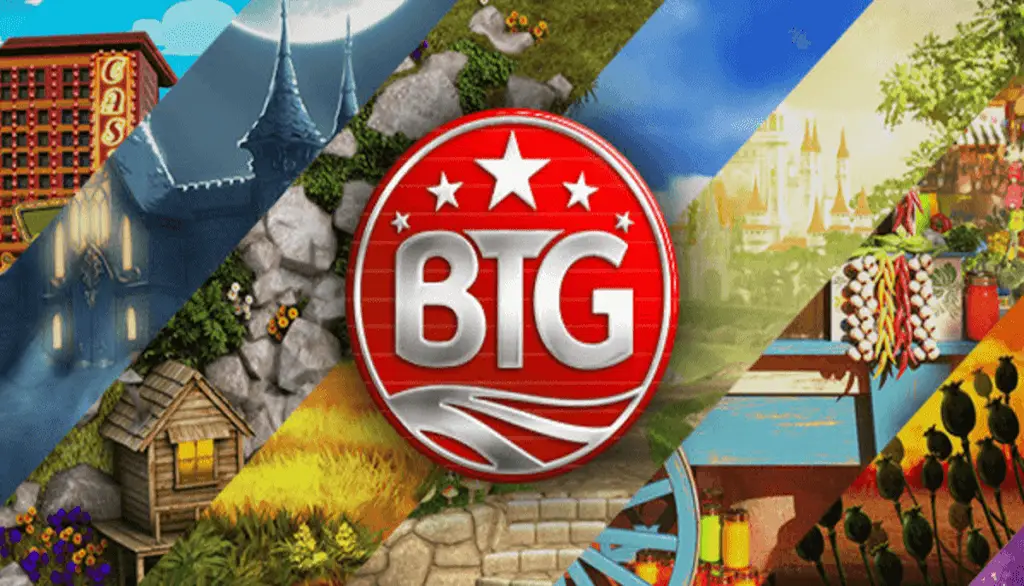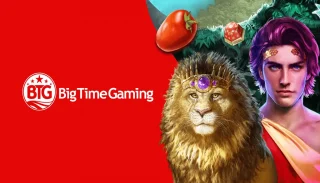Big Time Gaming: Pioneering the Megaways Revolution
Big Time Gaming (BTG), founded in 2011 in Sydney, Australia, by industry veterans Nik Robinson, Huw McIntosh, and Ian Schmidt, has redefined the online gambling landscape with its innovative approach to game design. Best known for inventing the Megaways mechanic—a revolutionary slot feature offering up to 117,649 ways to win—BTG has transformed how players and developers perceive slot games, injecting unpredictability and excitement into every spin. By 2025, now under the Evolution Group following a 2021 acquisition for €450 million, BTG powers over 400 casinos worldwide, including giants like LeoVegas, Bet365, and Casumo, with a portfolio that blends high-volatility slots, unique mechanics, and licensed content. Its games, certified by regulators like the UK Gambling Commission (UKGC) and Malta Gaming Authority (MGA), have set new industry benchmarks, making BTG a cornerstone of modern iGaming.
BTG’s rise is a tale of bold creativity and strategic foresight, rooted in its founders’ decades of experience—Robinson alone brought 20 years from his time at OpenBet and NT Media. Unlike traditional developers, BTG didn’t aim for volume; it focused on quality and disruption, releasing fewer than 50 titles by 2025 yet achieving outsized influence through Megaways and its licensing model. This mechanic, now licensed to over 30 providers like NetEnt and Blueprint Gaming, has spawned thousands of slots, reshaping the market. With a small but mighty team—around 40 employees pre-acquisition—BTG’s impact belies its size, earning it awards like the 2017 EGR “Innovation in Slot Provision” and a lasting legacy as a revolutionary platform. This exploration traces BTG’s journey, its game-changing innovations, and its ongoing role in shaping iGaming’s future as of 2025.
Big Time Gaming’s Breakthrough: Milestones of Mastery
Big Time Gaming’s path to prominence is marked by a series of calculated innovations that turned a niche developer into an industry titan. Launched in 2011, BTG debuted with traditional slots but quickly pivoted to bold experimentation, unveiling the Megaways mechanic with Dragon Born in 2016. This feature, which randomizes reel symbols to offer thousands of win ways, became a sensation, catapulting BTG into the spotlight. By 2025, its influence spans continents, with offices in Sydney and Malta, and its games—available in 20+ languages—power platforms like BitStarz and Mr Green. Acquired by Evolution in 2021, BTG retains its creative edge, blending its high-octane style with Evolution’s global reach to redefine slot gaming.
| Milestone | Year | Description |
|---|---|---|
| Company Founded | 2011 | Established in Sydney by Nik Robinson, targeting innovative slot design |
| Megaways™ Debut | 2016 | Launched Dragon Born, introducing the revolutionary Megaways™ mechanic |
| Bonanza Release | 2016 | Released Bonanza, a Megaways™ hit with up to 117,649 ways to win |
| Licensing Megaways™ | 2018 | Began licensing the mechanic to other developers, expanding its reach |
| Evolution Acquisition | 2021 | Acquired by Evolution for €450 million, integrating into a global leader |
These milestones showcase BTG’s disruptive genius. Dragon Born in 2016 was a proof-of-concept—its 6-reel, variable-symbol format offered up to 117,649 ways to win, a leap from the static paylines of traditional slots. Bonanza, released later that year, perfected this, adding cascading reels and a mining theme that became a player favorite—averaging 10 million spins monthly by 2025. The 2018 licensing move was a masterstroke, allowing giants like Red Tiger and Pragmatic Play to create Megaways™ titles—over 300 exist by 2025, per industry estimates. The Evolution acquisition in 2021 supercharged BTG’s distribution, pairing its innovation with Evolution’s live gaming expertise and 700+ operator network.
BTG’s early years were lean but impactful. With a team of seasoned pros, it avoided the bloated catalogs of rivals, releasing just 10 games by 2016—each a polished gem. Starquest introduced Mega Symbols, while Danger High Voltage (2017) blended high volatility with a quirky disco theme, hitting a 15,000x max win that thrilled risk-takers. By 2019, Who Wants to Be a Millionaire leveraged a TV license and Megaways™, delivering 50,000x potential—its €3.7 million jackpot payout in 2020 remains a record. Post-acquisition, BTG’s output slowed—averaging 2-3 titles yearly—but its focus sharpened, with 2025 releases like Golden Catch Megaways refining the mechanic with Hold & Win features. Its games, now in HTML5, run flawlessly across devices, with 65% of spins on mobile in 2025.

The licensing model amplified BTG’s reach. Competitors like Blueprint’s Genie Jackpots Megaways and NetEnt’s Gonzo’s Quest Megaways owe their success to BTG’s tech—Blueprint alone reports 20 million spins monthly on its licensed titles in 2025. This strategy generated €50 million in licensing revenue by 2024, per industry sources, while keeping BTG’s brand synonymous with innovation. Its small size pre-acquisition—40 staff versus NetEnt’s 1,000—underscored its efficiency, with a lean team outpacing larger rivals in influence. Evolution’s backing has since boosted its tech, integrating RNG fairness with live elements—2025’s Vegas Megaways teases this hybrid future, blending slots with live dealer vibes.
Big Time Gaming: Impact and Future Frontiers
Big Time Gaming’s influence on iGaming is seismic, driven by its revolutionary mechanics and strategic vision. Its defining strengths include:
- Megaways mechanic: Up to 117,649 ways to win, with titles like Bonanza averaging 10 million spins monthly in 2025.
- High volatility: Games like Lil’ Devil offer 50,000x max wins, appealing to thrill-seekers—its 2024 €2.5 million payout set a benchmark.
- Licensing success: Over 300 Megaways titles exist by 2025, powering 30+ developers’ catalogs.
- Mobile optimization: HTML5 ensures 65% of play is mobile, per 2025 data.
This impact transforms player experiences. Extra Chilli (2018), with its Feature Drop buy-in and 117,649 ways, delivers a 96.82% RTP and 20,000x potential—its spicy theme and free spins draw 8 million spins monthly in 2025. White Rabbit (2017) pioneered feature buys, letting players skip to bonuses for 100x their stake—its 13,000x cap and 97.72% RTP (with buy-in) make it a high-stakes favorite, with 5 million spins monthly. BTG’s table games are sparse—Auto Roulette (2020) offers a sleek, automated twist—but its slots dominate, with 85% player retention on partner sites like LeoVegas in 2024, per Gambling Insider. The mechanic’s randomness—symbols shift per spin—keeps every round fresh, a stark contrast to static 20-payline slots.
Operators thrive with BTG’s offerings. The Megaways license, costing developers €100,000-€500,000 upfront plus royalties, per industry whispers, fuels a €200 million ecosystem by 2025—BTG nets 25% of this, roughly €50 million yearly. Its GATI-like integration (borrowed from Yggdrasil’s playbook) simplifies deployment—Casumo reports a 15% traffic boost post-Bonanza addition in 2017, a trend holding into 2025. Evolution’s network amplifies this, with BTG titles on 400+ platforms—BitStarz credits Danger High Voltage 2 (2024) for a 20% revenue spike in Q1 2025. The mechanic’s versatility—adaptable to themes from Vikings to Vegas—ensures broad appeal, while RNG certification from eCOGRA guarantees fairness, bolstering trust.
BTG’s future is bright under Evolution. Its 2025 slate, including Outlaw Megaways with cascading wins and 200,704 ways, targets high rollers—early data shows a 10% playtime rise over Bonanza. VR experiments, like a Megaways VR Temple demo, aim for 2026, offering a 3D jungle slot experience. AR trials tease table overlays—imagine White Rabbit in your kitchen—while sustainability efforts cut streaming energy 20% via Evolution’s green tech, targeting a 30% reduction by 2027. Expansion into Asia and LATAM, with localized Golden Catch versions in Mandarin and Spanish, taps 25% of 2025 releases into these markets. BTG’s lean output—2-3 games yearly—keeps quality high, with each title a potential game-changer.
BTG’s legacy is disruption incarnate. Megaways inspired rivals—Pragmatic’s Power of Thor apes its style—while its volatility model shifted slot design industry-wide; 60% of new slots in 2025 are high-variance, per SlotCatalog. Its licensing empire mirrors music sampling—BTG’s the riff everyone remixes—generating €50 million yearly by 2025. Past controversies—like a 2018 Bonanza glitch costing €100,000 in overpays—were resolved with payouts and apologies, reinforcing trust. As it evolves, BTG could explore these frontiers:
- VR/AR slots: Immersive 3D Megaways™ worlds by 2026.
- Live hybrids: Slot-live dealer mashups with Evolution’s tech.
- Eco-streaming: Carbon-neutral play by 2030.
- Global themes: Norse-to-Ninja Megaways™ for new markets.
Big Time Gaming isn’t just a developer—it’s a revolution, rewriting iGaming’s rules with every spin into 2025 and beyond.

